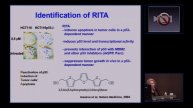Module 17: Factors Influencing Bilingual Development
This module investigates factors that influence bilingual language development. Evaluators who work with bilingual children must be familiar with typical second language acquisition, including phenomena such as subtractive bilingualism, the silent period, and code-switching. The effects of sociocultural background, personality and individual differences on bilingual language acquisition are discussed. In addition, Cate presents research that has demonstrated how similar second language acquisition can seem when compared to specific language impairment in monolingual speakers. This is why evaluators need the appropriate knowledge base to make an accurate diagnosis.
Assessment Materials- Dynamic vs. Static Assessment: http://www.leadersproject.org/2013/03/01/assessment-materials-dynamic-vs-static-assessment/
Resources from this module:
Paradis, J. (2005). Grammatical morphology in children learning English as a Second Language: Implications of similarities with specific language impairment. Language, Speech and Hearing Services in Schools, 36(3), pp, 172-187. http://www.leadersproject.org/2013/05/10/grammatical-morphology-in-children-learning-english-as-a-second-language-implications-of-similarities-with-specific-language-impairment/
Preschool Disability Evaluations (PDE) Playlist: http://www.leadersproject.org/2013/06/26/playlist-of-preschool-disability-evaluations-modules/
Видео Module 17: Factors Influencing Bilingual Development автора Университетский магазин
Видео Module 17: Factors Influencing Bilingual Development автора Университетский магазин
Информация
13 ноября 2024 г. 19:49:14
00:10:38
Похожие видео
 Arsenic alba@DrRajnishHomeopathy
Arsenic alba@DrRajnishHomeopathy Galina Selivanova, PhD
Galina Selivanova, PhD Water Gardening, An Equation For Success
Water Gardening, An Equation For Success Dmart lemon juice set ₹549 only🤩/Unpacking of glass lemon juice set/Affordable crystal glassware se
Dmart lemon juice set ₹549 only🤩/Unpacking of glass lemon juice set/Affordable crystal glassware se Evan’s Story HD
Evan’s Story HD Абзор чита
Абзор чита 21 июля 23 г.
21 июля 23 г. 19 января 2021 г.
19 января 2021 г. Репродукции картриджей #35
Репродукции картриджей #35 NEWS Paper Reading | தினமணி | 26.05.2024 | Suresh IAS Academy.
NEWS Paper Reading | தினமணி | 26.05.2024 | Suresh IAS Academy. Salps are everywhere in San Diego right now! #wildlife #ocean
Salps are everywhere in San Diego right now! #wildlife #ocean AMOR a la BIOLOGÍA
AMOR a la BIOLOGÍA Peasant rap
Peasant rap la verdad sobre la sal de mesa...🧂🧂🧂 #sabiasque #ciencia #educación
la verdad sobre la sal de mesa...🧂🧂🧂 #sabiasque #ciencia #educación Processes Involved in Respiration and Photosynthesis
Processes Involved in Respiration and Photosynthesis ЯНТАРНЫЙ. ДАЧИ И РЯДОМ БАЛТИЙСКОЕ МОРЕ. ПРИРОДА ЗАВОРАЖИВАЮЩАЯ И МОРЕ ЧЕРЕЗ 2 КМ. РОССИЯ КРАСИВАЯ
ЯНТАРНЫЙ. ДАЧИ И РЯДОМ БАЛТИЙСКОЕ МОРЕ. ПРИРОДА ЗАВОРАЖИВАЮЩАЯ И МОРЕ ЧЕРЕЗ 2 КМ. РОССИЯ КРАСИВАЯ Dolphin Relaxing Music, Sacred breath of Life - Dolphin Sounds, Delicate Music
Dolphin Relaxing Music, Sacred breath of Life - Dolphin Sounds, Delicate Music HOW TO BUY HAG
HOW TO BUY HAG 🚀 Creating Simple Designs Using Adobe Photoshop with Jaden
🚀 Creating Simple Designs Using Adobe Photoshop with Jaden 2 Simple Equations, Exercise 3A
2 Simple Equations, Exercise 3A
